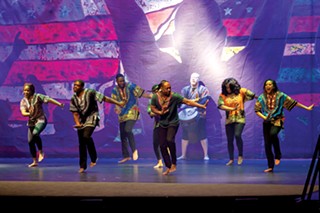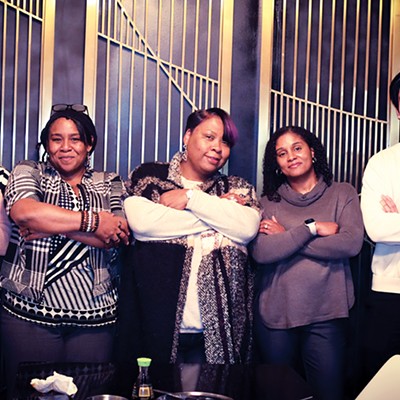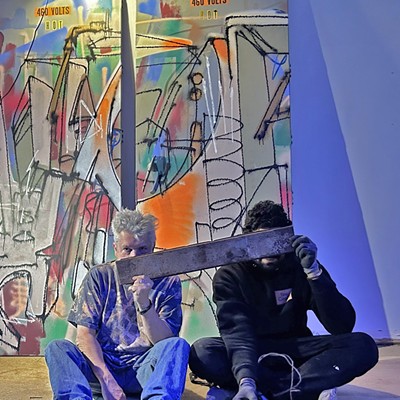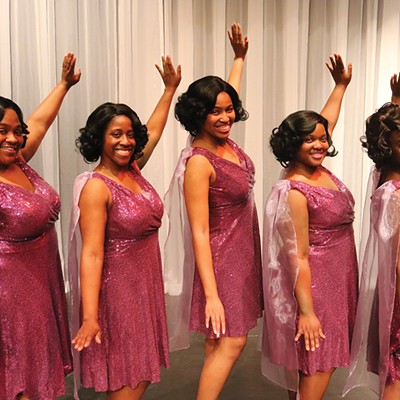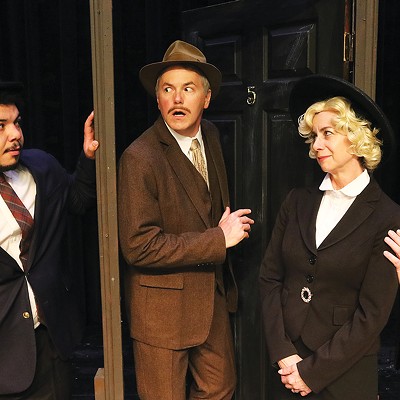In an ambitious move to illuminate the pages of history, the Springfield and Central Illinois African American History Museum is not merely a passive observer but a proactive catalyst for change. By bringing the play 1619: The Journey of a People to Springfield, the museum is forging a cultural bridge that spans centuries, connecting the struggles, triumphs and resilience of African Americans with the contemporary consciousness of its community. The thought-provoking and compelling play is written and produced by Ted Williams III and sponsored by Southern Illinois University and the Spencer Theatre Company.
This theatrical production is more than just a play; it's a journey through time, a deep dive into history and a poignant reflection on the enduring impact of significant events. Though it has been performed across the country, 1619: The Journey of a People first premiered in 2019 at Kennedy-King College, one of the seven City Colleges of Chicago. Told through the multidisciplinary tool of musical theater, it strives to convey a sizable piece of this history, while taking an unflinching look at America's current conditions. Although the anniversary of the first enslaved people to arrive in the U.S. over 400 years ago has been commemorated in multiple ways, Williams felt particularly called to use theater. This medium has long been an unparalleled tool for transmitting the stories of history.
1619 invites audiences to revisit a critical moment in history – the year when the first enslaved Africans were brought to the English colonies, laying the foundation for a complex and often painful chapter in the American story. Williams, with his keen artistic vision, will bring this historical narrative to life while offering a unique blend of storytelling, emotion and social commentary.
The play's title, 1619: The Journey of a People, serves as a powerful reminder of the roots of slavery in the United States. Through masterful storytelling and compelling performances, the production begins by exploring the lives, struggles and triumphs of individuals caught in the web of this dark period. The narrative weaves together the personal stories of those who endured the harsh realities of slavery, presenting a nuanced perspective that challenges audiences to confront uncomfortable truths. Yet, it doesn't stop there. The production seamlessly connects both the celebratory and painful moments of the 400-year history that uniquely forms the African American experience.
The show immediately opens with "The Journey," a hip-hop and West African musical fusion that uses dance to tie centuries of people together through the power of rhythm. It then explores the transatlantic slave trade through a piece called "Captured." Audiences might expect a direct journey through the next 250 years of American slavery. However, for Williams, predictability is a cardinal sin. So, the piece jumps immediately into a contemporary space where a modern character conveys a comedic connection to this difficult story.
"I Thought We Were Free" is a seven-minute musical journey through the Reconstruction era. Part comedy, tragedy and defiant social commentary, the piece is the most historically instructive one in the production. "Booker T and WEB" is a hip hop debate between two starkly different ideologies for social progress. Williams' most personal expression is a spoken-word piece entitled "After the Dream," an artistic statement that boldly ties the spirit of Dr. Martin Luther King Jr. to the unapologetic battles waged by today's racial equality movements. The finale piece, "Chains are Gone," is a triumphant musical theater celebration of the 400-year journey. It reminds us that on the other side of trial lies greatness.
One of the notable strengths of Williams' production is its commitment to authenticity. Every detail contributes to creating a historically accurate and immersive experience. The audience is transported to a different time and place, gaining a deeper understanding of the challenges faced by those who lived through this pivotal moment in history.
In addition to its historical significance, 1619 resonates with contemporary relevance. The play prompts reflection on the enduring legacy of slavery and its impact on present-day social and cultural dynamics. Through powerful dialogues and thought-provoking scenes, Williams encourages audiences to consider the ways in which historical injustices continue to shape America's social landscape.
Williams' production of 1619: The Journey of a People is a testament to the transformative power of the arts. By delving into a crucial moment in history, the play challenges preconceptions, fosters empathy and encourages a deeper understanding of the complexities that shape this nation. As the curtains fall and the applause echoes through the theater, 1619 leaves an indelible mark on its audience. Through Williams' artistic vision and the dedicated efforts of the cast and crew, this play becomes a vehicle for storytelling that transcends time, inviting us to reflect on where we have been and contemplate the path forward.
1619: The Journey of a People will be presented at the Hoogland Center for the Arts Jan. 27 at 7 p.m. and Jan. 28 at 2 p.m. Tickets can be purchased by calling 217-523-2787 or at hcfta.org.
Dr. Sheila Caldwell is the chief diversity officer for the Southern Illinois University System and serves on the board of directors for the Springfield and Central Illinois African American History Museum.

